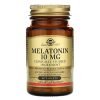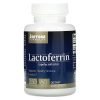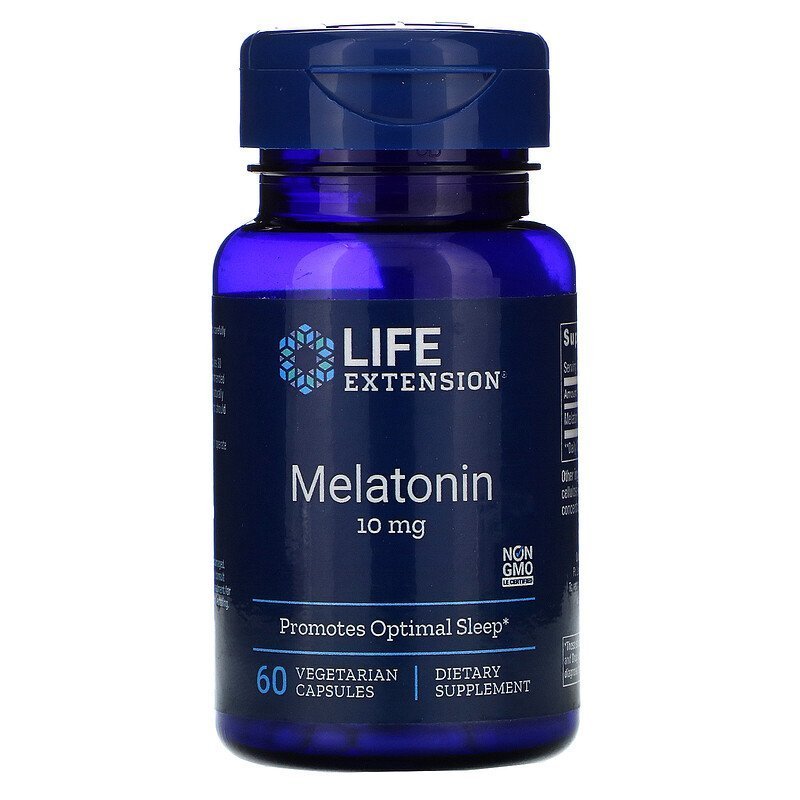Life Extension, Melatonin, 10 mg
- Melatonin promotes restorative sleep,
- Helps support circadian rhythms and immune function,
- It promotes the health of cellular DNA,
- Helps inhibit oxidative stress and protects against free radicals For occasional insomnia.
Description
Melatonin is a hormone derived from the amino acid tryptophan. Synthesized mainly in the pineal gland, melatonin is released mainly at night to make it easier to fall asleep. In addition to supporting healthy sleep, melatonin can help inhibit oxidative stress to promote healthy brain function, immune health, and more.
Melatonin increases the speed of falling asleep and enhances sleep quality. It also offers powerful protection against free radicals.
Melatonin: only to support sleep?
People take melatonin to promote optimal sleep, but melatonin also supports other important body systems: it helps inhibit oxidative stress, promotes immune health, and supports cognitive function. Thus, melatonin is not just for restful sleep, but for overall well-being.
Melatonin increases the speed of falling asleep and enhances sleep quality. It also offers strong protection against free radicals and supports healthy DNA.
Melatonin is a hormone derived from the amino acid tryptophan. It is synthesized mainly by the pineal gland in the brain and released mainly at night to fall asleep more easily.
In addition to supporting healthy sleep, melatonin offers protection against free radicals and has been shown to support immune health, healthy brain function, and more.
Melatonin and sleep
A good night's sleep is essential for overall health and well-being. But many people have difficulty falling asleep and staying asleep. Healthy sleep rhythms are regulated by your body's circadian rhythms, and melatonin helps keep your circadian rhythms in tune.
But melatonin release decreases with age and can be affected by jet lag, shift work and more. Melatonin promotes healthy sleep/wake patterns and encourages sleep onset, duration and quality.
Melatonin and oxidation
Melatonin also offers strong protection against oxidative stress. Melatonin is particularly important for healthy cellular DNA and mitochondria support because it helps inhibit oxidative damage by directly eliminating free radicals. Melatonin does this more effectively than many other antioxidants.
Melatonin and immune health
Melatonin has a beneficial effect on the immune system. It activates T helper cells, which activate other immune cells, stimulating the immune system's response to foreign molecules.
Melatonin and health
cognitive Age-related cognitive decline may be directly related to melatonin levels. Melatonin supplementation can help support the brain's normal protection against free radicals and may help support cognitive function.









Reviews
There are no reviews yet.